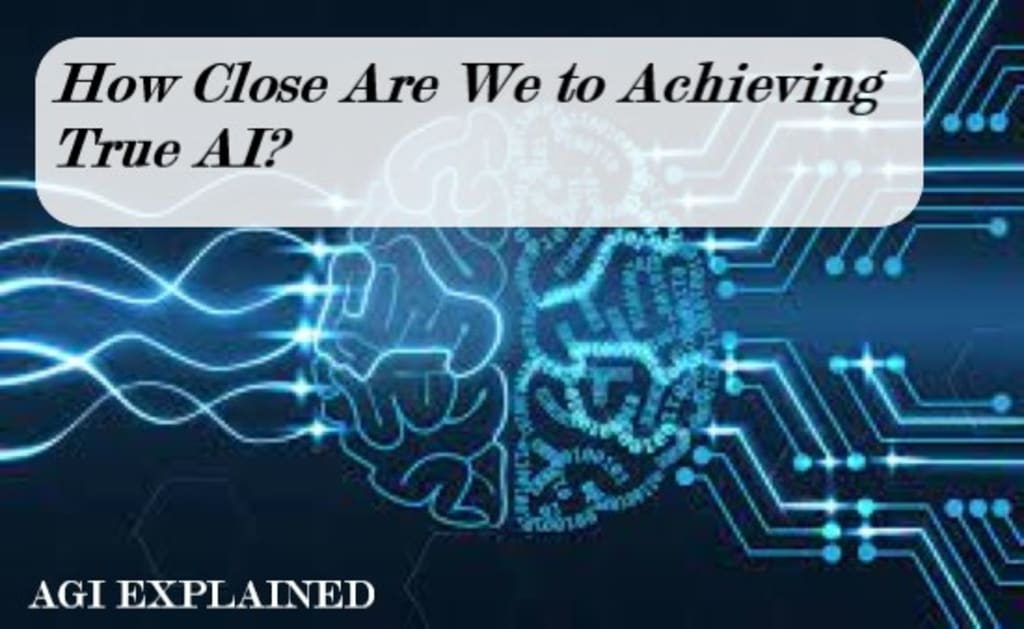Exploring the Potential of Artificial General Intelligence (AGI): How Close Are We to Achieving True AI?
Examining the Technical Challenges in Achieving Artificial General Intelligence: The Importance of Developing Robust and Adaptive Systems

Artificial General Intelligence (AGI) is an area of research that is advancing rapidly and holds immense potential for transforming our lives and society as a whole. AGI aims to create computer systems that can reason, plan, learn, and adapt like humans, rather than being limited to specific tasks like current AI systems. Achieving this level of intelligence is challenging, as it involves replicating the complex components of human intelligence such as perception, memory, and decision-making.
Despite the difficulty of replicating human intelligence, recent advances in computing power, data availability, and machine learning techniques have propelled AGI research forward. Researchers are exploring a range of approaches to achieve AGI, including developing algorithms that mimic the human brain, creating hybrid systems, and using machine learning to create self-learning systems. While progress has been significant, there is still much debate about which approach is most promising.
Achieving AGI is a complex task that involves overcoming various technical challenges. One of the most significant challenges is the creation of systems that are both robust and adaptive. A robust system can function effectively in a variety of environments and conditions, while an adaptive system can learn and evolve over time.
Developing systems with these capabilities is particularly challenging, as it requires creating algorithms and architectures that can operate in unpredictable environments. Additionally, systems must be able to learn from limited data and generalize to new situations, which is a significant challenge.
Researchers are working on various approaches to AGI development, including neural-symbolic integration, cognitive architectures, and developmental approaches. These approaches aim to incorporate human-like reasoning and learning capabilities into AGI systems, enabling them to reason and learn like humans.
Despite the progress in AGI research, there is still much work to be done to achieve true AGI. Researchers must continue to explore new techniques and approaches to achieve the robustness and adaptivity required for AGI. Additionally, ethical and social concerns must be addressed to ensure that AGI is developed and used in a responsible and ethical manner.
One of the most significant achievements in AGI research to date is the creation of OpenAI's GPT-4 language model, which has demonstrated impressive capabilities in natural language processing and can generate coherent text in response to prompts. This breakthrough is just the beginning of what AGI can achieve.
The potential applications of AGI are vast and diverse. AGI could be used to solve complex problems in various fields such as medicine, finance, and environmental management. It could also be used to develop intelligent robots that can perform tasks in hazardous environments or automate tasks that are currently performed by humans, freeing them up for more creative or complex work.
However, the development of AGI also raises significant ethical and social concerns that must be addressed. One of the most pressing concerns is the potential for AGI to be used for harmful purposes, such as autonomous weapons or cyberattacks. Another concern is the impact of AGI on the job market, as machines with human-like intelligence could displace workers and exacerbate economic inequality.
To mitigate these risks, researchers and policymakers are working to develop ethical guidelines and regulations for the development and use of AGI. The Partnership on AI, a nonprofit organization founded by leading tech companies, has developed ethical principles for the development of AI, including transparency, fairness, and privacy.
In conclusion, AGI has the potential to revolutionize our lives and society. While there are significant challenges and risks associated with its development, the benefits of AGI are immense. It is crucial that we address the ethical and social concerns associated with AGI and work towards a future where AGI is used for the betterment of society. Despite the long road ahead, the progress in AGI research is significant, and the potential for AGI to have a positive impact on society is immense.
About the Creator
Shabana Tabasum
Aviation Enthusiast | Defence Analyst | Content Writer | Motivational Speaker | Health Advisor | Wellness Coach | Leading My Dreams






Comments
There are no comments for this story
Be the first to respond and start the conversation.